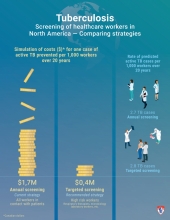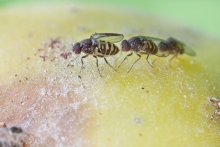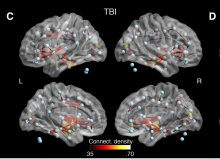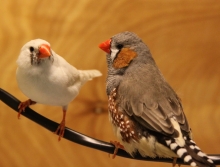Stress heightens fear of threats from the past
Recognizing threats is an essential function of the human mind — think “fight or flight” — one that is aided by past negative experiences. But when older memories are coupled with stress, individuals are likely to perceive danger in harmless circumstances, according to a paper published today in the Proceedings of the National Academy of Sciences.

Newly discovered pathway for pain processing could lead to new treatments
The discovery of a new biological pathway involved in pain processing offers hope of using existing cancer drugs to replace the use of opioids in chronic pain treatment, according to scientists at McGill University.

Playing with your brain
Human-computer interactions, such as playing video games, can have a negative impact on the brain, says a new Canadian study published in Molecular Psychiatry. For over 10 years, scientists have told us that action video game players exhibit better visual attention, motor control abilities and short-term memory. But, could these benefits come at a cost?

Speeding up SSRIs
For people suffering from depression, a day without treatment can seem like a lifetime. A new study explains why the most commonly prescribed antidepressants can take as long as six weeks to have an effect. The findings could one day lead to more effective and faster acting drugs.

Costs associated with homelessness are high, suggesting need for shift to programs to end homelessness

New MUHC study calls for targeted screening of high-risk healthcare workers for tuberculosis


UAlberta and McGill scientists uncover a hidden calcium cholesterol connection
By Ross Neitz, University of Alberta
It’s well known that calcium is essential for strong bones and teeth, but new research shows it also plays a key role in moderating another important aspect of health—cholesterol.
Scientists at the University of Alberta and McGill University have discovered a direct link between calcium and cholesterol, a discovery that could pave the way for new ways of treating high blood cholesterol.

Fear, fearlessness and animal extinction
Too much fear can be dangerous for species’ survival. In fact, fear alone, even in the absence of a live predator, can lead to species’ extinction if the population size is small enough suggests a recent study from McGill and Guelph universities. To read: “How fear alone can cause animal extinction”
“Rebalancing society” module launched
On the occasion of the High Level Political Forum held on 18 and 19 July at the United Nations Headquarters in New York, PRME in collaboration with McGill University and KEDGE Business School are pleased to announce the launch of a new Sustainability Literacy Test (Sulitest) module based on Henry Mintzberg’s book Rebalancing Society.

Brains are more plastic than we thought
Practice might not always make perfect, but it’s essential for learning a sport or a musical instrument. It's also the basis of brain training, an approach that holds potential as a non-invasive therapy to overcome disabilities caused by neurological disease or trauma.
John Dobson Foundation makes its largest donation to McGill to support X-1 entrepreneurs
The John Dobson Foundation has announced a donation of $2 million dollars – its largest gift to McGill yet – to fund the McGill X-1 Accelerator program run by the McGill Dobson Centre for Entrepreneurship. The donation will support the program now in its third year, as it grows to support entrepreneurs across McGill University.

Detecting long-term concussion in athletes
Lawyers representing both sides in concussion lawsuits against sports leagues may eventually have a new tool at their disposal: a diagnostic signature that uses artificial intelligence to detect brain trauma years after it has occurred.

Lost in translation: To the untrained zebra finch ear, jazzy courtship songs fall flat
Zebra finches brought up without their fathers don’t react to the singing of potential suitors in the same way that female birds usually do, hinting that the environment in which the birds are raised can have a determining effect on their behaviour.
The finding, published in the Proceedings of the Royal Society B by McGill researchers, highlights how learning and experience, including developmental auditory experience, can shape how the brain perceives vocal signals.

Crafting better beer
Canada’s extensive malting and brewing industry could get a further boost from new insight into the science of malting.

